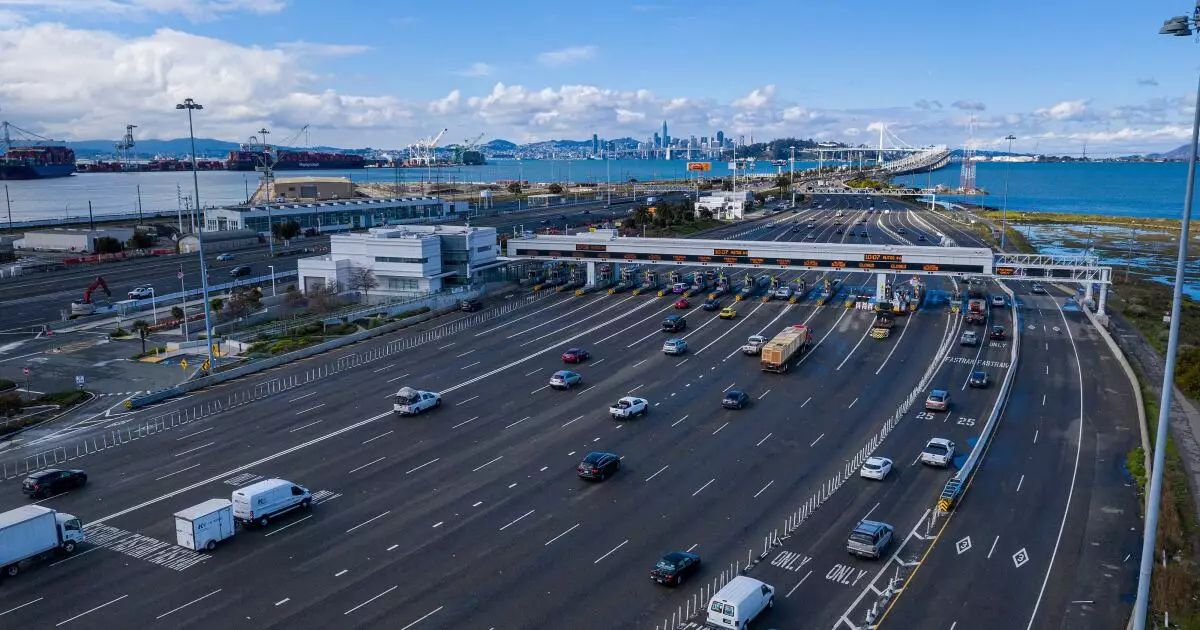America’s transportation infrastructure is at a breaking point, and the traditional approach to funding it through gas taxes is quickly becoming obsolete. With a dramatic shift toward electric and fuel-efficient vehicles, gas taxes are plummeting as a reliable source of revenue. The number of states proposing legislation that bypasses antiquated funding methods underscores this urgent need. Two-thirds of states have initiated transportation funding bills this year alone, aiming to innovate an infrastructure system that desperately requires renewal and expansion.
An astonishing 130 transportation funding bills introduced across 37 states in the first quarter alone indicates a level of urgency that has been missing in past years. Approximately 25% of these measures focus on raising recurring revenues, suggesting that policymakers are beginning to understand the importance of user fees in funding road maintenance and development. If the gas tax is no longer a viable solution, states must adopt alternative measures swiftly or risk falling woefully behind.
Tolling: A Controversial but Viable Solution
Among the various funding measures proposed, the Indiana General Assembly recently passed a bold bill allowing the tolling of all state interstates. While some may decry this move as draconian, it represents a much-needed shift in how we think about transportation funding. Lawmakers like Rep. Jim Pressel have articulated a growing sentiment: “You pay for what you use.” This principle not only levels the playing field for all road users but also provides a sustainable model for maintaining and enhancing our crumbling infrastructure.
The fiscal analysis accompanying the legislation indicates that tolling could generate up to $38.2 billion in revenue for Indiana from 2029 to 2050. This is not just financial wizardry; it’s a practical admission that our roads, akin to public utilities, necessitate a user-based funding model. While tolling may be unpopular in certain circles, it is essential for generating the kind of revenue necessary to stabilize our infrastructure crisis, especially as the electric vehicle (EV) market expands and, ironically, diminishes traditional gas tax revenue.
States in Search of a Modern Revenue Framework
As Indiana embarks on this tolling journey, it’s crucial to acknowledge that the state is not alone in pursuing innovative funding sources. A kaleidoscope of proposals proliferates across the nation, all driven by the necessity of addressing real and pressing infrastructure challenges. Maryland’s recent legislation, which aims to rake in an estimated $500 million through new taxes and fees, exemplifies a more proactive state-level approach that could inspire others to follow suit.
Additionally, North Carolina is taking steps toward implementing local government-led bonds based on anticipated revenue, which could offer municipalities greater financial flexibility. Virginia, too, is making headlines with its new law facilitating the issuance of $1 billion in revenue bonds for special infrastructure projects. This diversified approach to funding, which includes local and regional efforts, could serve as a model for other states struggling with similar concerns.
Exploring Electric Vehicle Fees: Necessary Adaptation or Overstep?
The financial ecosystem surrounding road usage is changing, necessitating new taxes tailored to modern vehicles. About 14% of new bills aim to establish an electric vehicle fee, while an impressive 11% focus on road usage charges. This innovative shift signifies an understanding that EVs must contribute to the maintenance of roads they use, especially as they have traditionally evaded the gas tax structure. However, these measures raise important questions regarding whether the development of such fees might stifle the EV market, which is crucial for combating climate change.
Congress is eyeing a national EV fee to counterbalance the declining gas tax. Still, one must wonder if this move would deter potential EV buyers. Implementing these fees must be approached delicately, ensuring that promoting cleaner vehicles does not backfire and become a deterrent for consumers. The goal shouldn’t just be to fill funding gaps, but to create an equitable system where every vehicle type contributes.
Funding the Future: An Imperative Political Dialogue
The rapid legislative changes across various states indicate a renewed urgency around transportation funding. It is apparent that this issue requires bipartisan engagement, as both parties have tools and proposals that could lead to meaningful change. Republican proposals like the Fair Share Act highlight the potential for cross-party dialogue that seeks to adapt transportation funding to 21st-century needs, a challenge often lost in partisan squabbles.
As we consider the implications of these changes, it’s vital that this conversation is not merely about filling coffers but about crafting a visionary approach to transportation that prioritizes both equity and sustainability. From raised tolls to innovative EV fees, the time for our political leaders to act decisively is now. The foundation for America’s transportation future is being laid, and it must not just be built on taxes, but rather on a framework that genuinely serves the users and the environment.


Leave a Reply